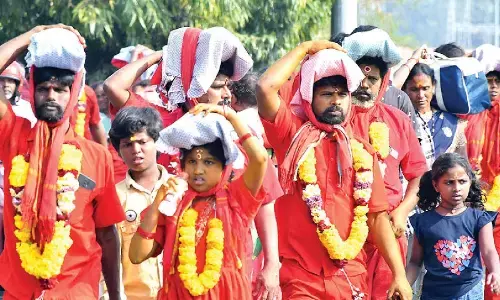BCI urges all universities to ensure stricter adherence to regulatory measures
Share :

In order to curb the unchecked proliferation of law colleges, the Bar Council of India (BCI) has urged Vice Chancellors of all the universities to ensure stricter adherence to regulatory measures.
New Delhi: In order to curb the unchecked proliferation of law colleges, the Bar Council of India (BCI) has urged Vice Chancellors of all the universities to ensure stricter adherence to regulatory measures.
The BCI, the regulatory body for legal education in the country, said that despite its proactive measures, the response from universities regarding surprise inspections of affiliated law colleges has not met the expected standards.
“The level of responsiveness and adherence to these directives has fallen short of expectations. Despite the clear instructions provided by the Bar Council of India, the desired level of cooperation and action from the universities in conducting and submitting reports of surprise inspections has not been achieved. This lack of proactive engagement undermines the efforts to improve the standards of legal education and address the issue of unchecked growth of law colleges," said a letter issued by the BCI's Secretary.
It added that only through collaborative efforts and strict adherence to regulatory measures, can the quality of legal education be safeguarded and the proliferation of substandard institutions be effectively addressed.
The BCI said that state governments and their ministries concerned must conduct thorough surveys and assessments before granting no objection certificates (NOCs) to new centres of legal education.
"It is imperative that these NOCs are issued based on comprehensive evaluations of the need for legal professionals in the region and the ability of the proposed centres of legal education to meet the requisite standards,” it said.
In 2015, the General Council of the BCI passed a resolution asking all the state governments and universities to impose restrictions on the issuance of NOCs and affiliations for a period of three years.
The establishment of a law college typically undergoes three key stages. Firstly, it requires obtaining an NOC from the Department of Higher Education, which serves as an initial quality control measure. Secondly, the university concerned issues an affiliation order, signifying its endorsement of the college's standards and curriculum. Lastly, the BCI grants approval to the university's affiliation, ensuring adherence to the rules of legal education.
By meticulously adhering to these stages, the state government, the Higher Education Departments, and universities can collectively mitigate the proliferation of substandard law colleges, the BCI said.
“We appeal to Universities and the Ministry of Education in each state to join hands with the BCI in our endeavour to uphold the sanctity and quality of legal education in India,” it said.
Under the Advocates Act, 1961, the BCI has been entrusted to regulate legal education.



















